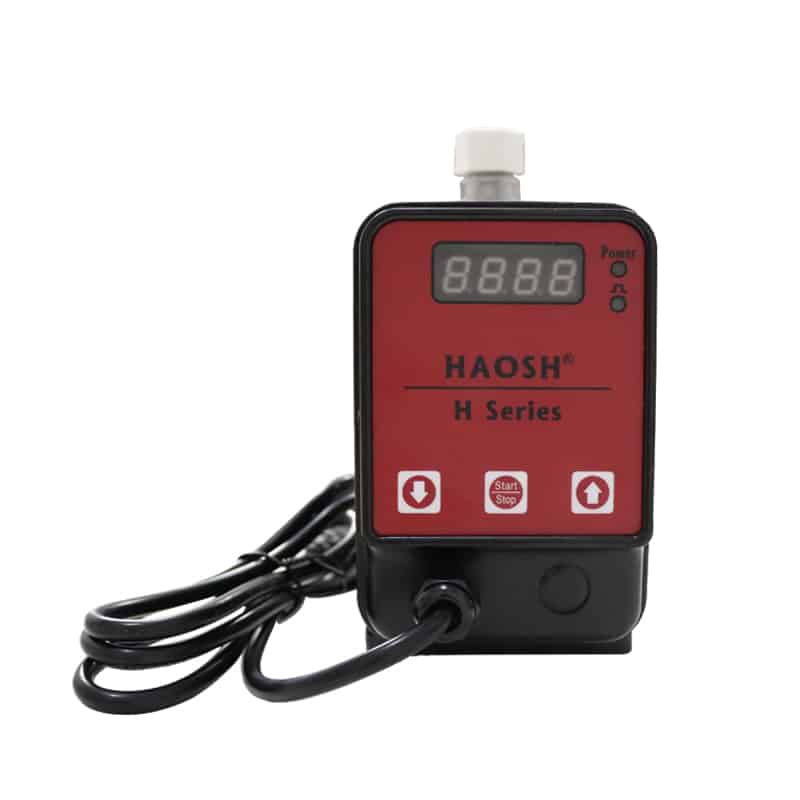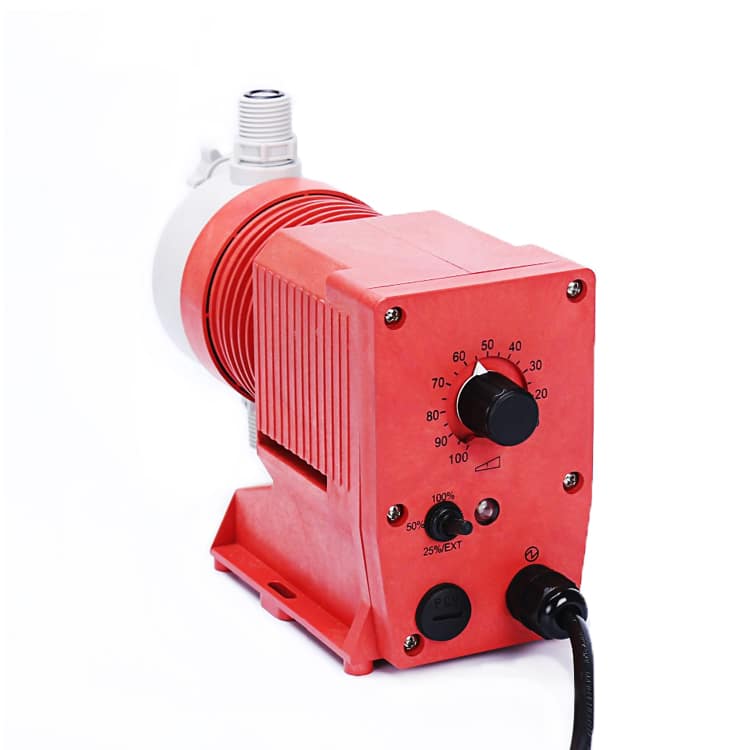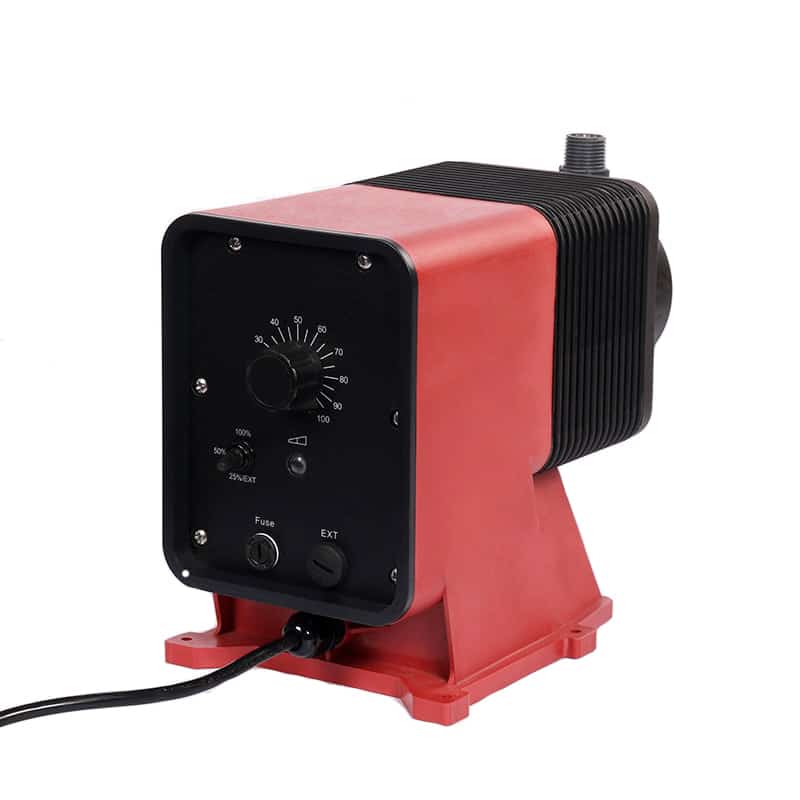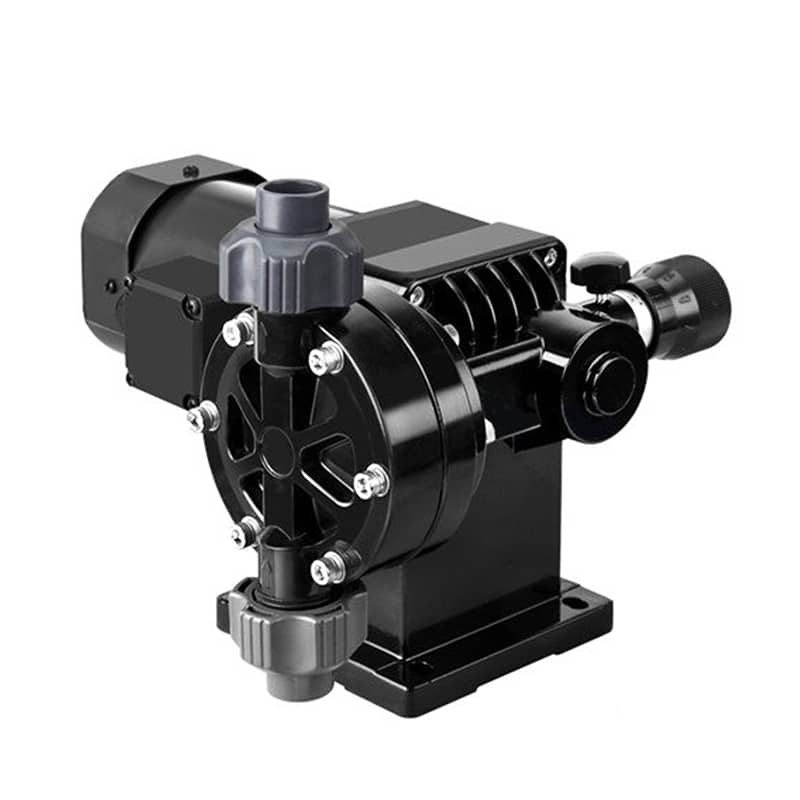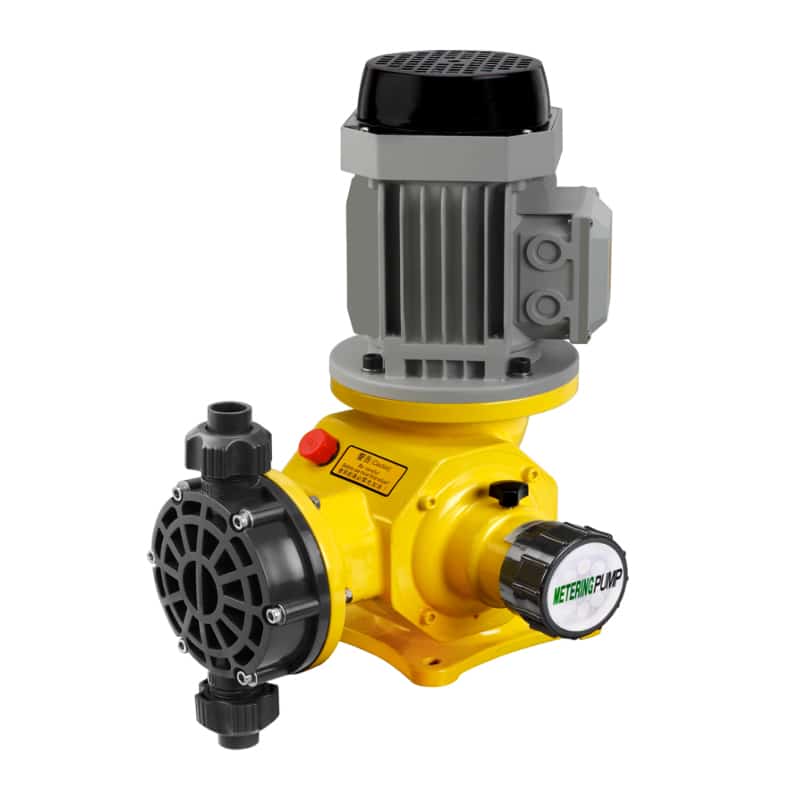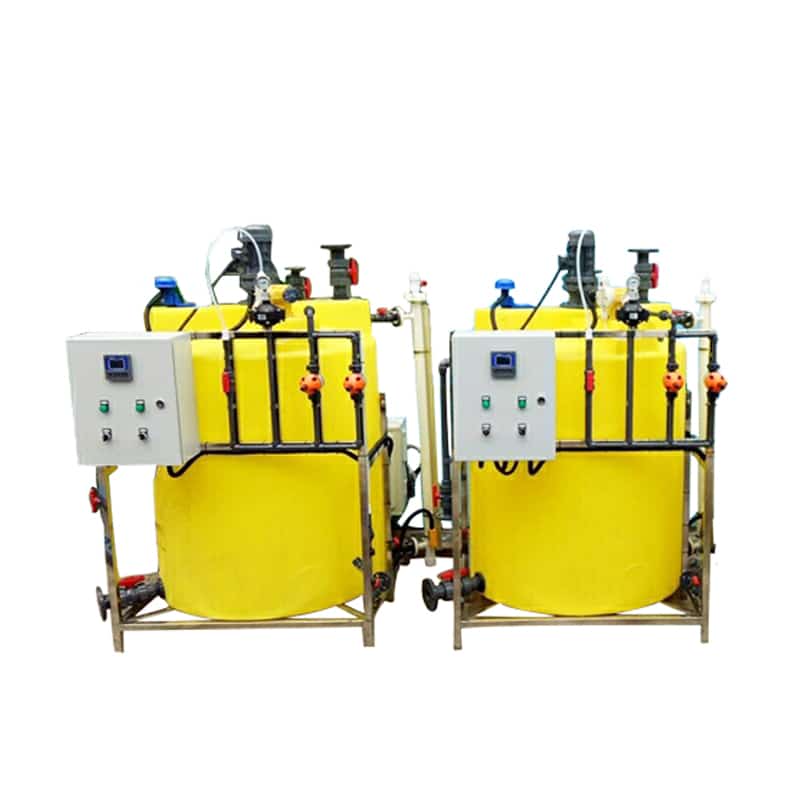Chlorine Dosing Pump
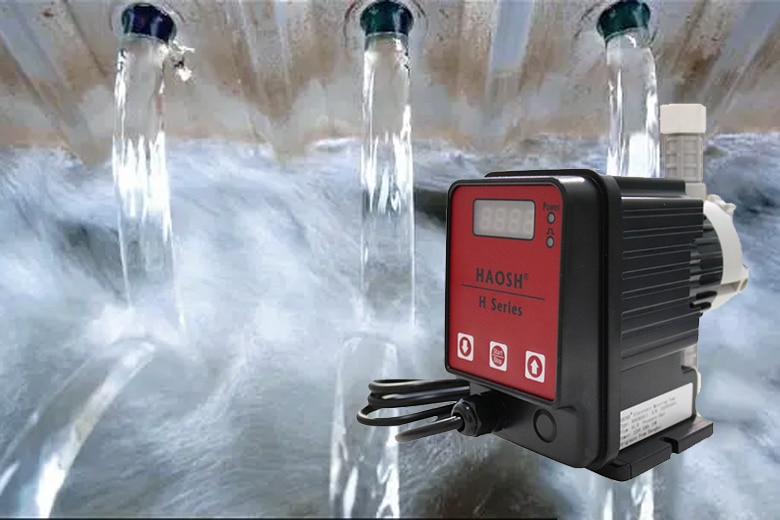
Chlorination, a method of disinfecting drinking water and sewage using chlorine as a disinfectant.
Chlorine is the traditional water disinfection process due to its low price, good disinfection effect and ease of use. Bleach can also be used. When chlorine is added to water using a dosing pump, hypochlorous acid and hypochlorite are generated, and the ratio of the two in the water depends on the pH. As hypochlorite is a neutral molecule is not charged and can diffuse to the surface of negatively charged bacteria, thereby destroying the enzymes in the bacterial body and its phase cell function so that the bacterial death, therefore, the lower the pH value, the higher the proportion of HClO content in the water, the better the disinfection effect.
Chlorine disinfection principle
Chlorine dissolves in water and reacts as follows:
Cl2 + H2O = HCl + HClO
HClO=H+ +CLO-
Advantages
- A proven sterilization solution at a low cost
- Effective sterilization
- Simple and quick to use
Disadvantages
- There are many factors affecting the disinfection effect of chlorine, if not handled properly, it may reduce its bactericidal effect
- The disinfected water often has a chlorine odor
- It has poor killing effect on germ cells, certain viruses and amoeba capsules
Common chlorine-containing sanitizers include sodium hypochlorite, calcium hypochlorite, water hypochlorite, chlorine dioxide, etc.
HAOSH offers chlorine dosing pumps that cover a wide range of industry applications, including swimming pool water, drinking water, and industrial wastewater. We can also customize the most appropriate chemical dosing system for your application, and skid-mounted configurations are also available for convenience.

